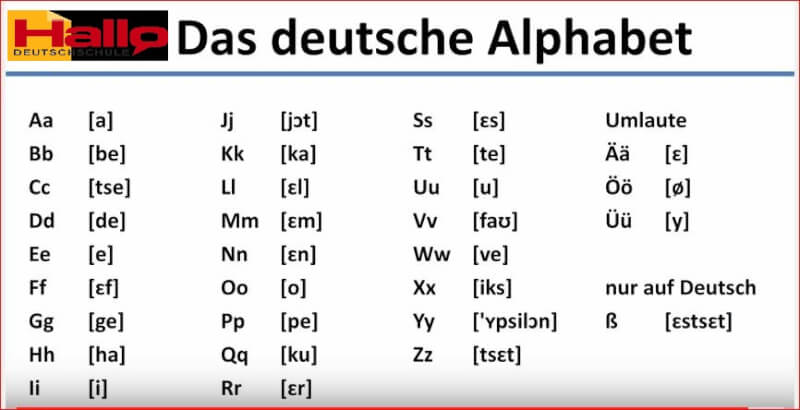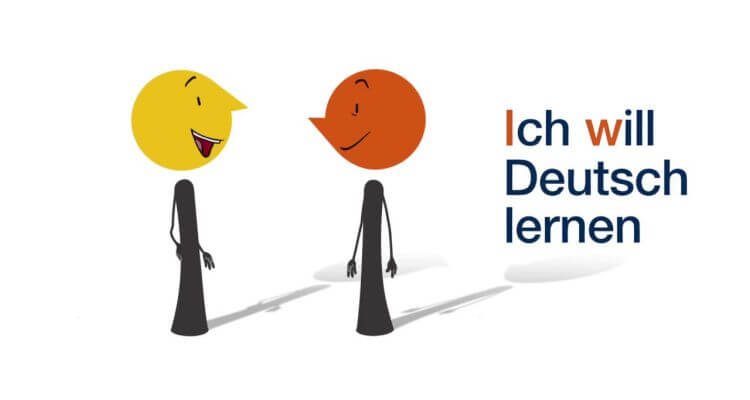Based on the latest 2020 statistics, English is the third most spoken language in the world. About 379 million people are found in 137 countries where English is their first language. The majority of them are in Northern Ireland. On the other hand, German is ranked 17th among the most spoken languages worldwide. About 76,1 million people in 28 countries speak German as their first language.
Combining all speakers (native and bilingual), about 1.132.366.680 people speak English, compared with 132.176.520 German speakers.
Note: Standard German testament translation template
German – A Unique Language in the World
German is the official language in Germany. It is also spoken by a large population in Central Europe, especially in parts of Austria, Belgium, Switzerland, Liechtenstein and South Tyrol in Italy. Furthermore, German is one of the official languages of Persian and the official language in Poland, Opole Voivodeship. In contrast, English is widely used in German pop culture and media. Due to their similarities, it is easier for English speakers to learn German because Germans find it easier to learn English.
German is ranked 17th as the most spoken language worldwide, but is ranked second after English for the most spoken West Germanic languages. The West Germanic Indo-European language family includes Yiddish, Low German/Low Saxon, Afrikaans, English, Dutch, Frisian, and Luxembourgish. In terms of vocabulary, German has many similarities with words from Swedish, Norwegian and Danish.
Difference Between German And English
Although the two languages may have some aspects in common since they come from the same branch of language, there are several other characteristics that hinder Germans from speaking English fluently.
Alphabet
The first is the alphabet. Like English, German has 26 letters, but also has a set of marked characters, such as ö, ü and ä, as well as the double S or scharfes S, represented by ß. Germans learning English for the first time often mistake E or R and write them as A or I when it is spelled.
Phonetics
In terms of phonology, German and English tones are almost similar. The same is true for intonation and stress. But in German, the sound /th/ is absent, so it is difficult for them to create words that start with this particular sound. English speakers pronounce /v/ and /w/ separately. German pronunciation words start with the /w/ sound in /v/ so “wine” becomes “vine” and “we” is pronounced “ve.”
Note: Land lease contract translation form English, Chinese, Japanese, Korean, German,c
Tense
For verb tenses, the continuous verb tense is not used in German. German uses the present simple when the English counterpart will use the future tense. Instead of the past tense, the present perfect is often used. German tenses are simpler. For example, the verb 'to go' has only two tenses in German, present and past tense.
So you say, "I go" (Ich gehe) and "I went" (Ich bin gegangen). You can indicate the future tense by adding a word that represents time in the future, such as tomorrow, next week, etc.
However, in English, you will have several tenses for the verb 'to go' in the affirmative, negative and interrogative forms, such as:
- Simple tense
- Simple past
- Future simple
- Present continous
- Past continuous
- The future continues
- Present perfect
- Past Perfect
- Future perfect
- Present perfect continuous
- Past Perfect continous
- Future perfect continuous
- Conditional
- Complete conditional sentence
- Present conditional continuous
English is generally unaffected while German is different, so some parts of speech in German may vary depending on their characteristics.
Word order
The word order of the two languages is different. English has the word order SOV. German, on the other hand, has a three-word order. In an independent clause, the main verb must come in second, which means that the subject and verb will have to be reversed. In German you say, "Manchmal komme ich mit dem Bus in die Schule,” means Sometimes I come to school by bus.
In an independent clause, the past participle should come down to the end. I have not seen him means “Ich habe ihn nicht gesehen" in German.
In a dependent clause, the main verb must be at the end of the sentence. It is shown in this example –”Sie fragte mich, ob ich to Film schon gesehen hätte” translates to She asked me if I had already seen the film in English.
The two languages have some of the same root words, such as drink/trinken, house/haus and winter/winter. However, there are also some root words that are not the same in meaning.
Note: Authorization letter translation form English, Chinese, Japanese, Korean, German, Russian
Here are some examples:
- aktuell (same as actual) – current
- groß (same as disgusting, gross) – big
- fahrt – ride, drive
- das Handy (same as useful, handy) – mobile, cellphone
- der Chef – boss, chief
- Hell-bright
- das Gift (same as present or gift) – poison
Use the article
In using articles, English uses indefinite and definite articles a, an and the. In German, articles express gender, so the definite article "der" is used for masculine, "die" for feminine and plural, and "das" for neutral.
However, you do not use definite or indefinite articles in German if you are indicating a form of identity, nationality or occupation.
Other difference
- German is very strict in the use of punctuation.
- Furthermore, German nouns are always capitalized.
- There are some differences between English and German grammar.
- For example, English has only nominative, accusative, and genitive cases for pronouns. The German language has additional connotations.
Furthermore, German has some long compound words. The English language also has several languages that can be found in dictionaries, such as:
- Otorhinolaryngological
- Thyroparathyroidectomized
- Radioimmunoelectrophoresis
- Honorificabilitudinitatibus
- Antidisestablishmentarianism
- floccinaucinihilipilification
- Pseudopseudohypoparathyroidism
- Hepaticocholangiochlecystenterostomies
- Pneumonoultramicroscopicsilicovolcanoconiosis
Note: Sample transcript translation English, Chinese, Japanese, Korean, German, Russian
But in German you will find more and in different categories, not only in medicine, like:
- Kraftfahrzeug-Haftpflichtversicherung – automobile liability insurance
- Betäubungsmittelverschreibungsverordnung – regulation requiring a prescription for an anesthetic
- Bezirksschornsteinfegermeister – head district chimney sweep
- Rechtsschutzversicherungsgesellschaften – legal protection insurance companies
- Rindfleischetikettierungsüberwachungsaufgabenübertragungsgesetz – beef labeling regulation and delegation of supervision law
- Lebensabschnittpartner – the person I am with today (partner, lover)
- Freundschaftsbeziehung – demonstrations of friendship
- Nahrungsmittelunverträglichkeit – food intolerance
- Donau-Dampfschifffahrtsgesellschaft – Danube River Steamship Company
- Rhein-Main-Donau-Großschifffahrtsweg – Rhine-Main-Danube shipping lane
- Arbeiterunfallversicherungsgesetz – Worker's Compensation Act
- Bundesausbildungsförderungsgesetz – Federal Education and Training Assistance Act
- Straßenverkehrs-Zulasungs-Ordnung – road traffic licensing regulations
- Behindertengleichstellungsgesetz – Equal Opportunities for People with Disabilities Act
- Steuervergünstigungsabbaugesetz – Tax Benefits Reduction Act
- Lebensversicherungsgesellschaft – life insurance company
- Verkehrsinfrastrukturfinanzierungsgesellschaft – transport infrastructure finance company
- Elektrizitätswirtschaftsorganisationsgesetz – Electricity Industry Organization Act
- Telekommunikationsüberwachungsverordnung – telecommunications monitoring regulations
- Hochleistungsflüssigkeitschromatographie – high performance liquid chromatography
English nouns are usually gender-neutral unless they refer to gendered living creatures such as sheep. German nouns are feminine, masculine, or neuter.
In German, it is possible to express one's feelings using the verb, "to have." For example, in English, you can say, “I am hungry.” However, it is common to say "I have hunger" in German.
As you can see, German and English have some differences that make learning either language not as easy as expected, even though they come from the same branch of West Germanic languages.
So it is not easy to learn English or German and that becomes some of the challenges when translating the language, because of the difference in the grammar rules. For example, when you say, 'I am reading the newspaper' in English, learners often translate it as 'Ich bin lesen die Zeitung' when translating word for word. However, the actual and correct translation is 'Ich lese die Zeitung', since German does not have a present continuous.
Note: Sample resume translation English, Chinese, Japanese, Korean, German, Russian
Professional German Translation Service
We can promote your global business in Central Europe where German is spoken by ensuring all your communications are perfectly accurate. Idichthuat provided High quality German translation service, using local and foreign translators with expertise in different fields. With the above sharing, we hope you can understand the difference between German and English to choose a suitable linguistics for future development.
Contact us today for the fastest service quote and consultation.
| ✔️ See more related information: | 👉 Reliable, Cheap, Professional Swedish Translation Chuyên |
| 👉 The Most Professional Electronic Translation | |
| 👉 Quick Translation of Seafood Documents | |

Nguyen Trung Khang - Talented interpreter and translator, passionate about translation
Nguyen Trung Khang is a talented interpreter and translator, with many years of experience in the field of translation and linguistics. He graduated from Ho Chi Minh City University of Education, majoring in Linguistics in 2015.
After graduating, Mr. Khang participated in a professional interpretation and interpretation training course at the University of Foreign Languages - Hanoi National University. He achieved a high-level certificate in interpreting and interpreting, and was also awarded a master's degree in linguistics.



